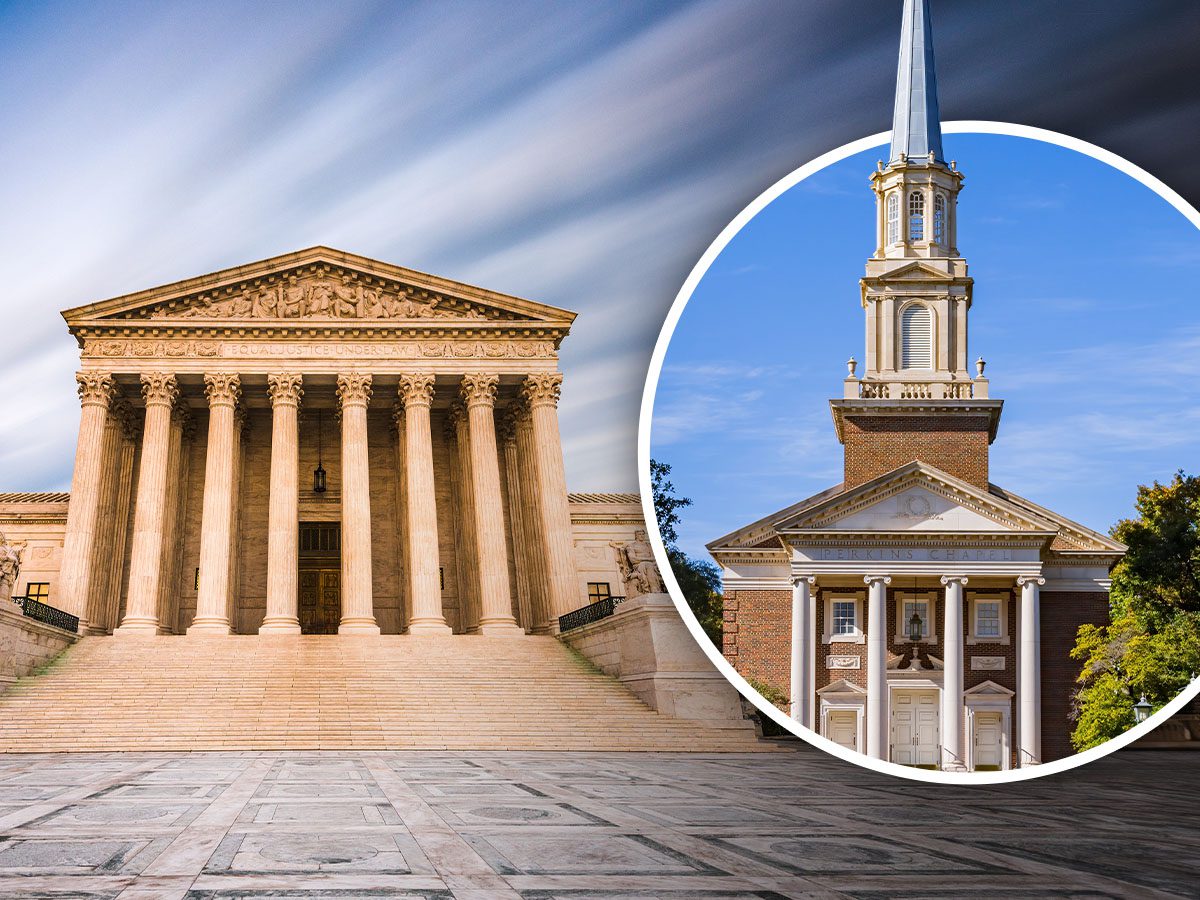
The Texas Supreme Court has agreed to hear a case between Southern Methodist University (SMU) and the United Methodist Church (UMC). The issues began in 2019 as the UMC battled over the issue of ordaining LGBTQ clergy and performing same sex marriages. At the time, the UMC voted in February 2019 to uphold the “Traditional Plan,” which strengthened the church’s ban against LGBTQ pastors and weddings. In November of 2019, SMU’s board of trustees voted “to make clear that SMU is solely maintained and controlled by its board as the ultimate authority for the University.”
The United Methodist Church’s South Central Jurisdictional Conference (UMC SCJC) sued SMU for the change, stating that SMU had made changes to its governing language without the approval of the SCJC, which founded the university in 1911. “This lawsuit has become necessary because of recent, unauthorized acts by representatives of SMU in violation of SCJC’s rights and interests,” the SCJC stated in the lawsuit. “[T]he Trustees of SMU had and have no authority to amend the Articles of Incorporation without the prior approval and authorization of SCJC. Because the Trustees’ acts were neither approved nor authorized by SCJC, the resulting November 2019 Articles are void from their inception.”
SMU, however, asserted its right to self-govern in February 2019. “Even as we value our historical relationship with the Church, SMU is distinct from the Church. Nothing changes in SMU’s day-to-day operations as a result of this action. In founding SMU, members of the Methodist Church and the citizens of Dallas created a University as a separate corporate entity governed by the SMU Board of Trustees,” it stated. A Texas district judge ruled in favor of SMU in 2021, but the SCJC filed an appeal. Last year, a three-judge panel of Texas’ Fifth Court of Appeals sided with the SCJC’s breach-of-contract claim, affirming its historic relationship with SMU. “In this case of first impression, we must determine whether a nonprofit corporation like SMU, whose governing documents provide that it is to be ‘forever owned, maintained and controlled’ by the conference and that no amendments to said articles ‘shall ever be made’ without the conference’s prior approval, can unilaterally amend the articles to remove these provisions and all other references to the conference,” the Appeals court said in its opinion. It did, however, uphold the dismissal of the SCJC’s claim that the university’s governing changes were also a breach of fiduciary duty. Since the struggle began in 2019, the UMC has struck down the rules of marriage and ordination that were upheld in 2019, with many conservative UMC churches leaving the denomination. The case between SMU and the UMC is set to begin oral arguments in January 2025.


